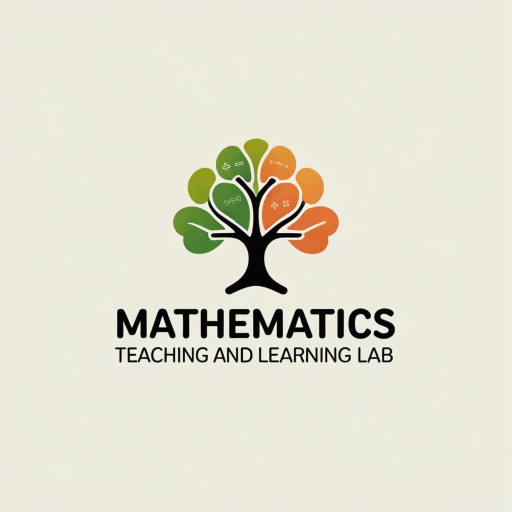
Helena P. Osana
- Professor, Education
Status: Principal Investigator of the Mathematics Teaching and Learning Lab
Are you the profile owner?
Sign in to editResearch areas: children's mathematical development; learning and instruction; mathematical cognition
Contact information
Email:
ORCID:
Biography
Biography
Helena Osana is Professor of Education at Concordia University in Montreal, Canada. She conducts research at the intersection of mathematics development, mathematical cognition, and educational psychology. Her work focuses on children’s mathematical thinking and the cognitive, representational, and instructional factors that support their learning. In particular, she investigates how external representations—such as images, diagrams, and concrete materials—shape children’s problem solving, reasoning, and conceptual development. Working in close collaboration with educators, Dr. Osana is committed to translating research into practice through partnerships with schools and teacher education programs.
Education
Ph.D. (Educational Psychology), University of Wisconsin—Madison, 1998
M.A. (Mathematics and Science Education), University of British Columbia, 1989
B.Sc. (Mathematics and Statistics), McGill University, 1986

Research
Mathematics Teaching and Learning Lab
In the Mathematics Teaching and Learning Lab (MTLL), we conduct research on children’s mathematical thinking and on strategies that support the development of understanding in areas such as number, units, place value, and multiplicative reasoning. Our work spans preschool through eighth grade, with many projects conducted directly in classroom settings.
A central focus of our research is how children create and interpret mathematical representations, including drawings, concrete objects (i.e., manipulatives),and conventional mathematical notation. Our work is grounded in cognitive frameworks that examine the development of symbolization and analogical reasoning, as well as the relationship between conceptual and procedural knowledge. These perspectives guide the design of teaching strategies aimed at supporting meaningful learning in mathematics.
Current Projects
How do children think about “one”? Understanding and supporting young children’s unitizing
Collaborators: Monyka L. Rodrigues (Concordia University); Moriah Sokolowski (Toronto Metropolitan University); Martha W. Alibali (University of Wisconsin–Madison)
This project investigates the development of children’s conceptual understanding of units. We are examining the types of visual representations that support their ability to treat collections as countable wholes.
Funded by the Social Sciences and Humanities Research Council of Canada (SSHRC), 2025-2027
Connecting research and practice in early math: Sharing successes and forging new ground
Collaborators: Rebecca Merkley (Carleton University); Jo-Anne LeFevre (Carleton University); Alexandra (Sandy) Youmans (Queen’s University); Monyka L. Rodrigues, (Concordia University); Sheri-Lynn Skwarchuk (University of Winnipeg); Zachary Hawes (University of Toronto)
This project brings together researchers in mathematical cognition and practitioners across Canada to design and test educational resources with the aim of supporting children’s learning of school mathematics.
Funded by the Social Sciences and Humanities Research Council of Canada (SSHRC), 2025-2026
Preparing sixth graders for science in high school: Reinforcing multiplicative reasoning in mathematics
Collaborators: Anne Lafay (Université Savoie Mont Blanc) & Vanessa Rayner
This project aims to facilitate students’ transition from elementary mathematics to science problem solving in high school. We are examining the types of visual representations and cognitive supports that will foster multiplicative reasoning in science contexts.
Funded by the Social Sciences and Humanities Research Council of Canada (SSHRC), 2024-2026
Publications
Representative Publications
Tellos, A., Osana, H. P., & Levin, J. R. (2025). Extraneous details on LEGO bricks can prompt children’s inappropriate counting strategies in fraction division problem solving. Education Sciences, 15(8), Article 947. https://doi.org/10.3390/educsci15080947
Barilaro, M., Osana, H. P., Ebbels, S., Nicoll, H., Achim, É., Pétel-Despots, A., & Lafay, A. (2024). Instructional supports can reveal the word-problem solving challenges of children with language difficulties. School Science and Mathematics, 125(1), 88-102. https://doi.org/10.1111/ssm.12691
Orsini, A., Houle, J., Osana, H. P., *Tellos, A., & Lafay, A. (2024). From participants to partners: Lessons learned from enacted curriculum research in early numeracy contexts (pp. 399-420). In Thompson, D. R., Huntley, M. A., & Suurtamm, C. (Eds.), Lessons learned from research on mathematics curriculum. Information Age.
Lafay, A., Osana, H. P., & Levin, J. R. (2023). Does conceptual transparency in manipulatives afford place value understanding in children with mathematics learning disabilities? Learning Disability Quarterly, 46(2), 92-105. https://doi.org/10.1177/07319487221124088
Osana, H. P., Adrien, E., Lafay, A., Foster, K., Vaccaro, K. K., Wagner, V., & MacCaul, R. (2023). The role of groundedness and attribute on students’ partitioning of quantity. In K. M. Robinson, D.Kotsopoulos, & A. Dubé (Eds.), Mathematical learning and cognition in middle childhood and early adolescence: Integrating interdisciplinary research into practice (pp. 227-245). Springer. https://doi.org/10.1007/978-3-031-29195-1_12
Osana, H. P., Wagner, V., & Navarrete, J. (2023). Spatial configuration of hundreds charts influences children’s knowledge of base-ten concepts. School Science and Mathematics, 123(4-5), 201-213. https://doi.org/10.1111/ssm.12593
Adrien, E., Osana, H. P., Kong, R. W., Bisanz, J., & LeVos, J. S. (2021). An examination of third-and fourth-graders’ equivalence knowledge after classroom instruction. Journal of Numerical Cognition, 7(2), 104-124. https://doi.org/10.5964/jnc.6913
Osana, H. P., Przednowek, K., Cooperman, A., & Adrien, E. (2018). Encoding effects on first-graders’ use of manipulatives. Journal of Experimental Education, 86(2), 154-172. https://doi.org/10.1080/00220973.2017.1341862
Osana, H. P., & Duponsel, N. (2016). Manipulatives, diagrams, and mathematics: A framework for future research on virtual manipulatives. In P. Moyer-Packenham (Ed.), International perspectives on teaching and learning mathematics with virtual manipulatives(pp. 95-120). Springer. https://doi.org/10.1007/978-3-319-32718-1_5
Osana, H. P., & Pitsolantis, N. (2013). Addressing the struggle to link form and understanding in fractions instruction. British Journal of Educational Psychology, 83, 29-56. https://doi.org/10.1111/j.2044-8279.2011.02053.x
Recent Conference Presentations
Dawson,N., Nicoll, H., Osana, H. P., Lafay, A., Barilaro, M., & Ebbels, S. (May 2025). Trialling simplification strategies for maths word problem solving in children and adolescents with developmental language disorder (DLD). [Poster presentation]. Society for Research in Child Development. Minneapolis, MN
Tellos, A., Osana, H. P., & Sidney, P. G. (October 2025). Division model and divisor type lead to trade-offs in fraction division performance. [Poster presentation]. North American Chapter of the International Group for the Psychology of Mathematics Education. The Pennsylvania State University.
Osana, H. P., Barilaro, M., & Lafay, A. (June 2024). Can children and adults coordinate units in base ten? In H. P. Osana & K. Mix (Chairs), What do we know about children’s knowledge of base-ten numeration? [Symposium]. Mathematical Cognition and Learning Society7th Annual Conference, Washington, DC.
Retanal, F., Wales,E., Osana, H. P., & Maloney, E. A. (July 2023). Exploring parental beliefs about productive and unproductive struggle in math learning.[Poster presentation]. Canadian Society for Brain, Behaviour and Cognitive Science (CSBBCS). Guelph, ON, Canada.
Osana, H. P., Lafay, A., Macevicius, C., & Wagner, V. (April 2022). Visual representations and relational statement understanding in second and third graders’ word-problem structure performance. American Educational Research Association [Paper presentation]. San Diego, CA.
Adrien, E., Osana, H. P., & Uttal, D. H. (April 2021). Influences of different instructional approaches on first-graders’ manipulative use. Paper presented at the Virtual Biennial Meeting of the Society for Research in Child Development [Poster presentation]. Baltimore, MD

